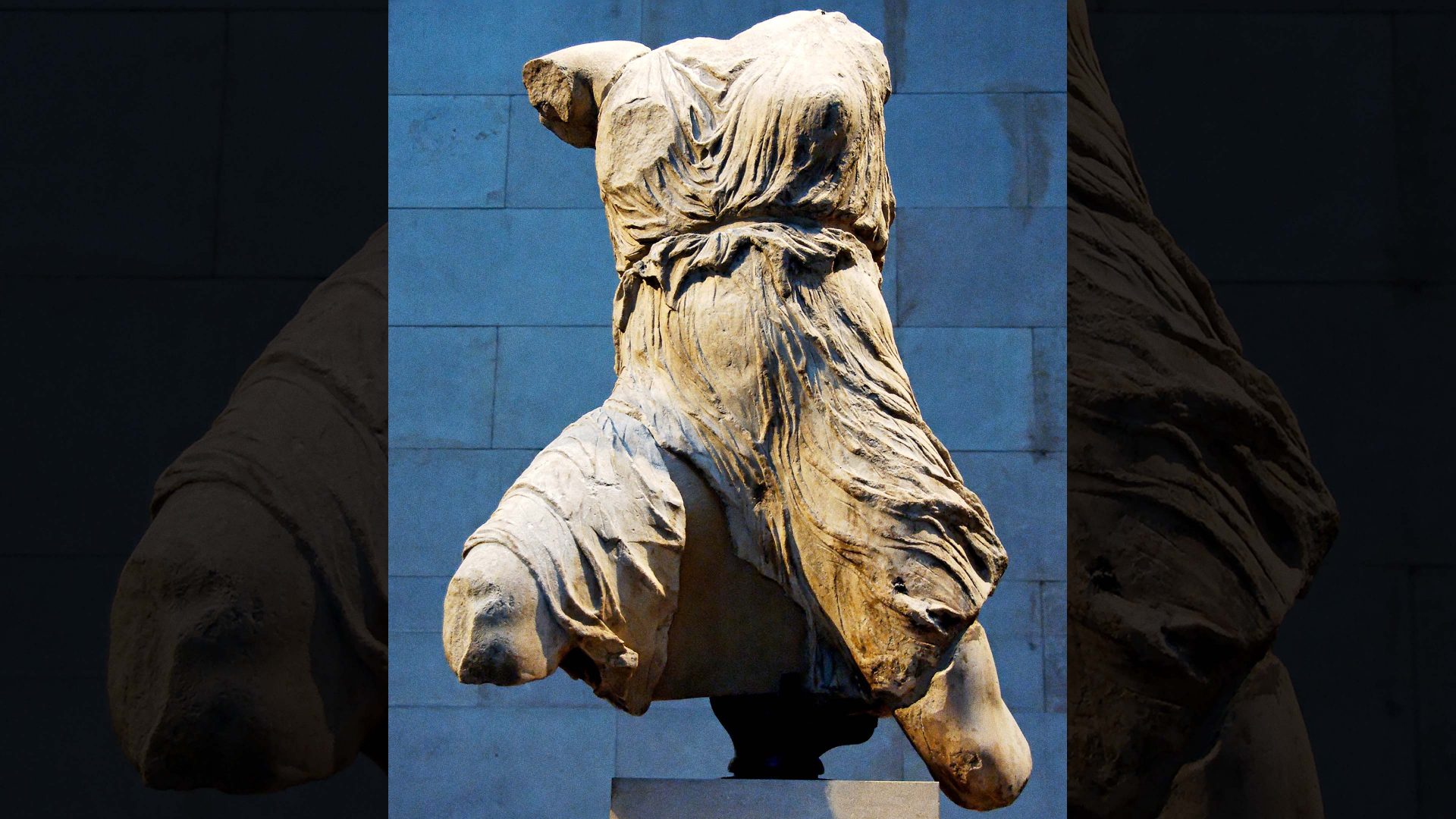This month a remarkable exhibition opened at Mumbai’s CSMVS Museum. (The initials stand for Chhatrapati Shivaji Maharaj Vastu Sangrahalaya, which explains why the institution is known by the acronym.)
The exhibition is the result of deep cooperation between four of the world’s great cultural institutions, and it will give Indians the opportunity to see in their own country a wonderful assortment of ancient sculptures from across continents. Since the majority of Indians do not enjoy the luxury of travel, this will be a uniquely valuable experience.
Contrast this partnership with the continuing furore over the Elgin Marbles and whether those currently in the British Museum should actually be on display in Greece. Prime minister Rishi Sunak’s petulant decision not even to keep an appointment with the Greek prime minister because he had responded when asked a question about the marbles on the BBC was the opposite of the grown-up behaviour that has enabled the Mumbai exhibition to come about.
Cultural institutions thrive on collaboration. Without international cooperation they would become sterile, their curators destined to grow as fusty as some of their exhibits. The issue of the marbles, more appropriately labelled as the Parthenon sculptures, would lose much of its current toxicity if only it could be viewed in the context of collaboration rather than as a wrestling match between politicians keen to demonstrate their muscle power.
Now, in the wake of Brexit, it is more important than ever for the UK to demonstrate that it still understands the need for close cooperation with its erstwhile EU partners. Despite the hugely expensive fiasco of the government’s determination to export a few asylum seekers to Rwanda, it is glaringly obvious that any attempts to deal with the immigration issue can only succeed if they are tackled internationally.
As for Sunak’s pledge to “stop the boats”, any sensible strategy would surely begin with the point of embarkation – France – and not central Africa.
Belatedly, the UK has acknowledged the need for science to be conducted in a multi-country way and has agreed to rejoin the immensely valuable Horizon project. And now the European Movement has launched an overdue campaign to have the UK resume membership of the Erasmus programme, the EU-led educational scheme that had allowed so many UK students to benefit from studying abroad.
Culture does not and should not be restrained by national boundaries. Music, for example, is an international language although, sadly, Brexit has put huge obstacles in the way of UK musicians wanting to play across Europe. Orchestras will still find a way to tour though, and audiences will appreciate the magic they can bring.
Art in all its forms is also international, whether it be a Picasso painting or an ancient Egyptian urn. Language barriers do not exist when people can simply marvel at what others have created, in some cases many thousands of years ago.
The museum sector has a proud history of sharing, institutions lending items from their collections for display internationally. When I was lucky enough to be on the board of the British Museum, we were regularly asked to approve the limited-term loan of particular items to destinations as varied as Saint Petersburg and Madrid. There were always concerns over whether the objects could be safely packaged and transported, but the principle of allowing a wider international audience to enjoy elements of the fabulous BM collection was part of the organisation’s DNA.
Hence the BM is now one of the four parties to the latest Mumbai deal, along with Berlin’s Staatliche Museum and California’s Getty Foundation. It is actually the Getty’s generous funding that is making the new exhibition possible.
The curators who lovingly look after the collections both in the UK and in Greece would surely have sorted out the argument over the Parthenon sculptures long ago had it been left to them. Instead, it has been allowed to be seen only as an argument over ownership and not access.
Repatriation is a fraught area for museums. The BM has returned some artefacts consisting of human remains to where they had once lived. This was possible because the Human Tissue Act of 2004 created a very limited exception to the law governing the BM’s collection, which places a duty on trustees to safeguard the collection in its entirety. That stipulation is coming under pressure as some countries query the legitimacy of the ownership of some items in museums’ collections.
The BM is certainly not alone in having acquired some objects of questionable provenance. On a tour of Russia’s magnificent Hermitage Museum, our guide explained of several exhibits: “We confiscated that”. Clearly, it was an effective way to bolster a collection!
But despite the arguments over ownership, quietly and painstakingly behind the scenes, there has been huge progress in negotiating a settlement. It would have seen the sculptures heading to Athens, but the UK in return receiving regular loans of antiquities never before seen in this country and therefore likely to bolster visitor numbers. It would be a victory for the cultural collaboration that helps to build relationships between nations.
It would be a real tragedy if Sunak’s hissy fit has upset the Greek prime minister, Kyriakos Mitsotakis, sufficiently to jeopardise the potential solution that had been brought so close to fruition.




